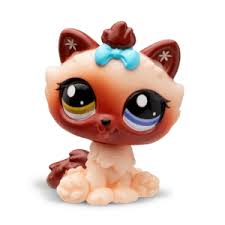Its A Sin Pet Shop, In recent years, the phrase “It’s a sin” has transcended its traditional meanings, becoming a powerful slogan in various contexts. One of the more unusual applications of this phrase is in the realm of pet shops. When discussing the ethical implications of pet ownership and breeding practices, many animal rights advocates and consumers alike have begun to use “It’s a sin” to express their discontent with certain pet shop practices.
The Rise of Ethical Concerns
For decades, pet shops have been a popular source for acquiring pets, particularly dogs and cats. However, growing awareness about puppy mills, kitten factories, and unethical breeding practices has sparked a significant shift in consumer behavior. Many pet shops have been criticized for selling animals sourced from these disreputable breeders, where the health and welfare of the animals are often neglected in favor of profit.
The phrase “It’s a sin” encapsulates the outrage felt by many towards these practices. Advocates argue that it is morally reprehensible to prioritize profit over the well-being of animals. This sentiment has fueled a movement toward adopting pets from shelters and rescue organizations instead of buying from shops that may perpetuate these issues.
The Shift to Adoption
As awareness grows, more people are turning to local shelters and rescue groups to adopt pets. This shift is not just a trend but a fundamental change in how society views animal companionship. Adoption saves lives, as many animals in shelters face euthanasia due to overpopulation. The idea of adopting rather than shopping has gained significant traction, with many campaigns promoting the message that “Adopt, Don’t Shop.”
This movement aligns with the “It’s a sin” mentality, as many believe it is a sin to ignore the suffering of animals in shelters while supporting businesses that exploit them. By adopting, individuals not only provide homes to animals in need but also send a clear message against unethical breeding practices.
The Impact on the Pet Shop Industry
In response to this growing trend, some pet shops are rebranding themselves as advocates for animal welfare. They are beginning to collaborate with local shelters, offering space for adoptable pets and promoting adoption events. This shift aims to attract customers who are increasingly aware of the ethical implications of where they acquire their pets.
However, not all pet shops are adapting. Some continue to source animals from questionable breeders, facing backlash from consumers who adhere to the “It’s a sin” philosophy. As public awareness continues to grow, these businesses may find it increasingly difficult to maintain their customer base.
Conclusion
The phrase “It’s a sin” has taken on new meaning in the context of pet ownership and the pet shop industry. As ethical concerns regarding animal welfare become more prominent, consumers are re-evaluating their choices. By choosing to adopt rather than shop, individuals are not only providing loving homes to pets in need but are also challenging the status quo of the pet industry. The movement toward ethical pet ownership is more than a trend; it’s a moral imperative, echoing the sentiment that it truly is a sin to ignore the suffering of our furry friends.
You Might Also Like These:
Post Categories
Popular Post
The Enduring Popularity of Littlest
Finding the Perfect Pet Shop
The Growing Popularity of Pet
Archives
Email for newsletter
At PL SHOP, we’re here to help you find the perfect pet for your family. Your new furry friend will bring you endless love and joy. Let us assist you in discovering the companion that fits your lifestyle!
Contact Us
- +1 (903) 658-8501
- info@thepetlovershop.com
- 1201 3rd Street, Langdon, ND 58249
Subscribe
COPYRIGHT © PET LOVERS SHOP. ALL RIGHTS RESERVED.











